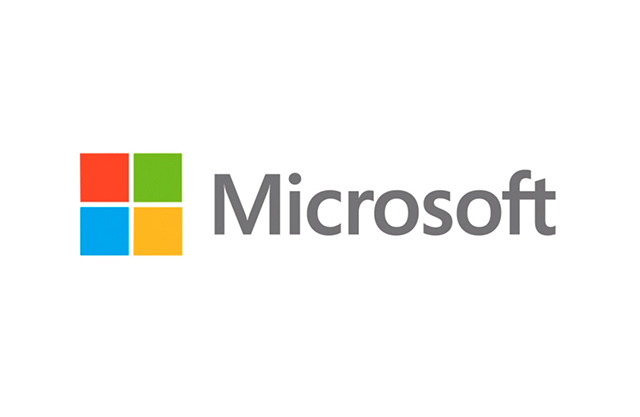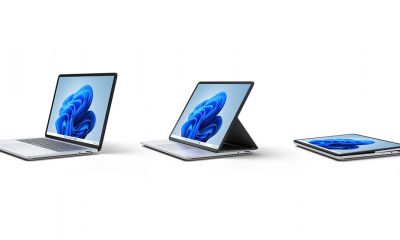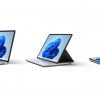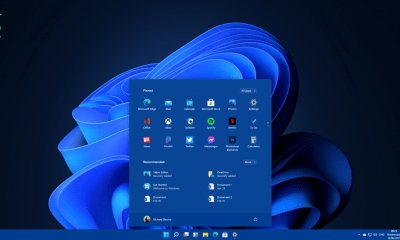Home
Microsoft Addresses Software Piracy at Anti-Counterfeiting Roundtable
Software and Devices company, Microsoft Nigeria has made recommendations on ways to address software piracy at the Anti-Counterfeiting Collaboration of Nigeria (ACC)’s 5th Roundtable. The ACC’s 5th Roundtable in conjunction with the International Trademarks Association (INTA) took place in Lagos, with Microsoft as a sponsor.
The ACC is the umbrella body for intellectual Property Rights (IPR) legalization and related issues in Nigeria with membership spanning across all sectors including the Intellectual Property Lawyers Association of Nigeria (IPLAN).
Discussions during the session centred on piracy/counterfeiting as a major concern which cuts across varied goods, products and industries ranging from entertainment, IP/software, textiles, dairy, pharmaceuticals etc.
The discussants noted that transnational lack of borders of the internet makes the unlawful copying and distribution of pirated products, services and designs at a global scale very easy but its enforcement difficult given the difficulty of ascertaining where the infringement took place whether on the infringer’s computer, the server and in which country.
Ijeoma Abazie, Head, Corporate Affairs, Microsoft Anglophone West Africa speaking at the roundtable to review the IPR Bill addressed software piracy, its various forms, how it undermines the industry’s ability to innovate, limits economic growth in economies around the world and puts consumers’ data and security at risk as well as the use of anti-piracy technology to checkmate it.
Disclosing some findings of the Business Software Alliance/INSEAD study, Ijeoma said that increasing the use of genuine software by 1% contributes $73 Billion to the global economy as opposed to $20 Billion from pirated software, a whopping gap of $53 Billion.
She highlighted the benefits of curbing software piracy to include increased jobs, tax revenues and safety noting that these are more impactful on the economy as opposed to the endorsement of software piracy which essentially funds terrorism globally, undermines online stability and security.
To recapitulate the time and resources that are wasted by cybercrime, Abazie quoted IDC statistics, “Globally consumers will spend 1.5 billion hours and $22 billion identifying and recovering from the impact of malware and global enterprises will spend $114 billion to deal with the impact of malware-induced cyber-attacks”.
Panellists at the session to discuss the Industrial Property Commission of Nigeria (IPCOM) Bill reached a consensus on the urgent need to draft and enact an IP Bill for Nigeria aligned with international best practice and technological developments.
Lending the voice of the Devices and Software Company for reforms in Nigeria and the West African Sub-region, Abazie recommended the enhancement of enforcement using dedicated specialized IP enforcement, investigating and prosecuting resources and cross border cooperation among Law Enforcement Agencies (LEAs) across West Africa.
She reiterated the need for increased Public Education and Awareness to change the current apathetic public attitudes toward software and IP, leader-led model by Government through the promotion and use of legal software in state-owned enterprises and among all its contractors and suppliers as a precondition for contracting with it and also through implementing software asset management (SAM) programs.
Her submission also included Multi-stakeholder strategy involving private and public sector collaboration on effective enforcement by LEAs; Industry-led initiatives to promote SAM in the public and private sectors; Increased support from the Nigerian Customs Service and strengthened cross border customs collaboration to checkmate the importation and distribution of pirated/counterfeit software; Modernization of IP Laws to provide for the protection and enforcement of infringement of new software innovations, such as cloud computing technologies, online piracy and the proliferation of networked mobile devices; Fast tracking the enactment of an all-encompassing IP Bill aligned with international developments and Fast tracking the passage of the Cyber Security Bill and other related Bills.
The Head of Corporate Affairs, Microsoft Nigeria concluded by hinting participants that Microsoft XP operating system will come to its end of life support at the end of April 2014 and as such, security patches will no longer be released, leaving PCs running XP vulnerable to cyber-attacks and almost 14 times more likely than those running Windows 8 to become infected with malware and that to avert this it is advisable to start planning to migrate to the latest version of Windows 8.1 software.
Earlier in her opening address, Lara Kayode, Partner O. Kayode & Co and who represented INTA, stressed the need for public awareness, strong enforcement of and a strong IP legal framework that adequately compensate and protect rights holders whose IP has been infringed as piracy and counterfeiting rob government globally of revenue that can be used to develop economies.
Other attendees at the Roundtable included Brand owners, Regulatory Agencies including the Nigerian Copyright Commission (NCC), Standards Organization of Nigeria (SON), Nigerian Customs Service (NCS) and the Consumer Protection Commission (CPC). The Pharmaceutical sector, the Trademarks Registry, Law makers, Intellectual Property Practitioners/ Stakeholders and the Federal Ministry of trade and Investment among others were also well represented.






















Recent Comments